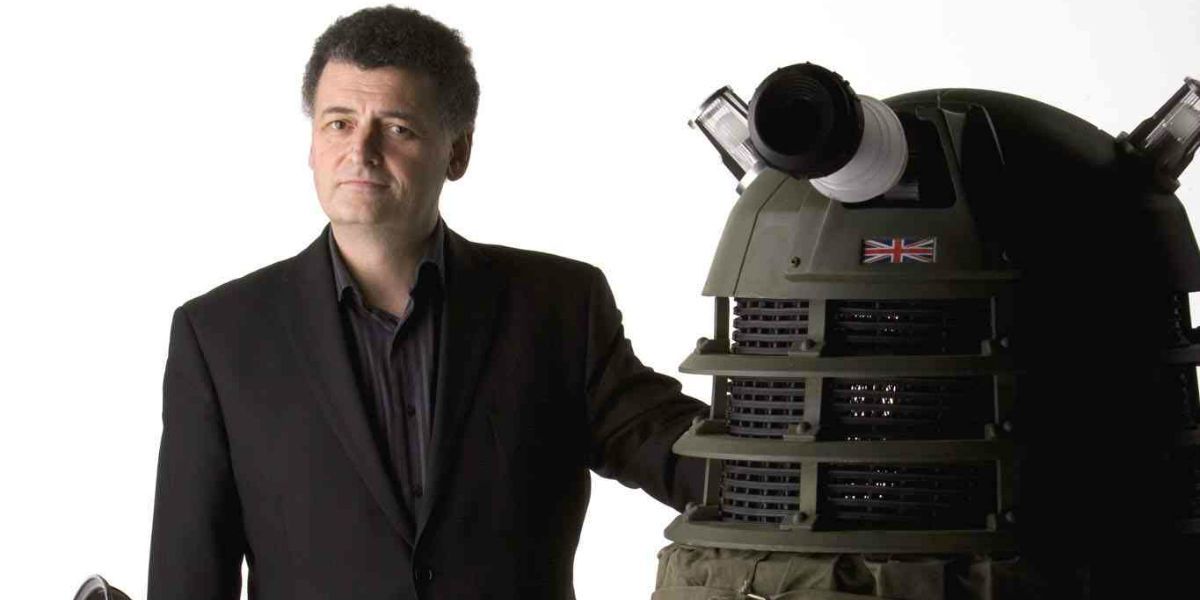Showrunner Steven Moffat is departing Doctor Who, after twelve years writing for the show and seven years as head writer. The venerable sci-fi institution is approaching a major transition period, as current Doctor Peter Capaldi will depart during this year's Christmas special, "Twice Upon A Time," where he'll pal around with the First Doctor (David Bradley) before handing the TARDIS keys over to Jodie Whittaker, the first woman to portray the Doctor. And while Capaldi's departure after three seasons in the role is certainly seismic, arguably the bigger departure is Moffat bowing out and Broadchurch creator Chris Chibnall taking over as showrunner.While Moffat's tenure as the show's head writer began in 2010 with Matt Smith's Doctor, his history with and influence on the show goes back much further. Moffat - who had already made a name for himself in television with series like Coupling and Press Gang - was part of Russell T. Davies' writing staff when the series returned from its long hiatus in 2005, routinely penning the best episodes of each season. A lifelong Doctor Who fanatic, Moffat also wrote a loving parody of the series for Comic Relief in 1999. It's fairly easy to argue no one has had more direct influence on Doctor Who in the 21st century than Steven Moffat.Related: Steven Moffat Awkwardly Defends Not Casting a Female Doctor WhoSo what sort of legacy will Moffat enjoy now that he's leaving the TARDIS? A complicated one, to be sure.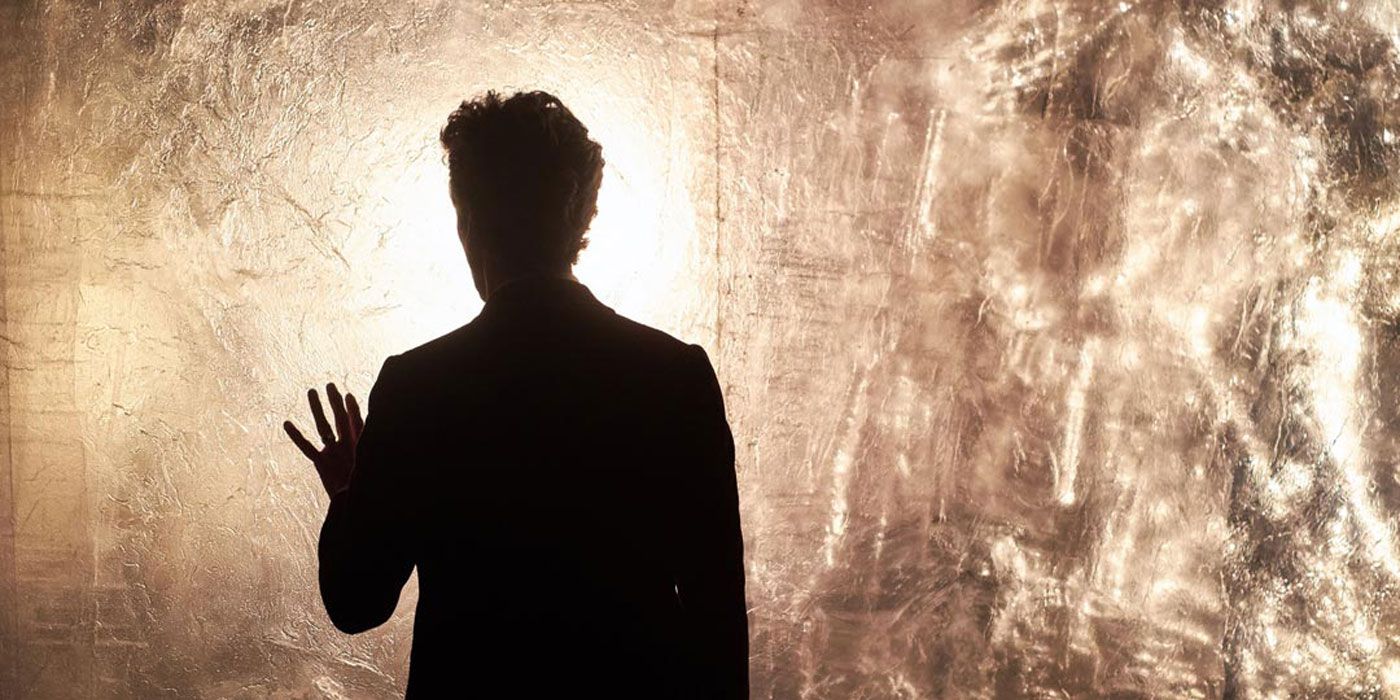 On a purely practical level, no one in the modern era of Doctor Who has come close to writing as many universally beloved episodes, and only classic series writer Robert Holmes really rivals Moffat over the show's 54 year history. The third season episode "Blink" has become the most often cited entry point for new viewers, an episode light on the Doctor himself but absolutely brimming with all the elements that make the show so appealing. "The Girl In The Fireplace" is in many ways "Blink's" opposite number, a time traveling romantic romp that showcased Tenth Doctor David Tennant at the height of his considerable charm. "The Eleventh Hour" is pretty easily the best post-regeneration episode in the show's history, as Matt Smith's Eleventh Doctor manages to save the world and completely alter the life of young Amelia Pond before he ever puts on his bow tie.Perhaps Moffat's single most impressive episode - and arguably the most impressive hour in the series' history - is season nine's "Heaven Sent," which finds Peter Capaldi's Twelfth Doctor virtually alone for the entire episode, stalked by a mysterious creature in a strange castle. Emotionally wrenching and visually stunning, with a powerhouse performance by Capaldi at its center, it's the closest Doctor Who has ever come to arty, prestige television.Beyond episodic achievements, Moffat has established several series tropes that feel so absolutely vital at this point it's difficult to remember they weren't always there. For the vast majority of the series' run, time travel was simply a way for the Doctor and his companion to arrive at a new adventure; the mechanics and ramifications of time travel were usually, at best, a secondary concern. Moffat essentially made time travel itself the show's second most important character, creating non-linear puzzles all around the Doctor, and showing the tangible consequences of meddling with the timeline in both massive and tiny ways.
On a purely practical level, no one in the modern era of Doctor Who has come close to writing as many universally beloved episodes, and only classic series writer Robert Holmes really rivals Moffat over the show's 54 year history. The third season episode "Blink" has become the most often cited entry point for new viewers, an episode light on the Doctor himself but absolutely brimming with all the elements that make the show so appealing. "The Girl In The Fireplace" is in many ways "Blink's" opposite number, a time traveling romantic romp that showcased Tenth Doctor David Tennant at the height of his considerable charm. "The Eleventh Hour" is pretty easily the best post-regeneration episode in the show's history, as Matt Smith's Eleventh Doctor manages to save the world and completely alter the life of young Amelia Pond before he ever puts on his bow tie.Perhaps Moffat's single most impressive episode - and arguably the most impressive hour in the series' history - is season nine's "Heaven Sent," which finds Peter Capaldi's Twelfth Doctor virtually alone for the entire episode, stalked by a mysterious creature in a strange castle. Emotionally wrenching and visually stunning, with a powerhouse performance by Capaldi at its center, it's the closest Doctor Who has ever come to arty, prestige television.Beyond episodic achievements, Moffat has established several series tropes that feel so absolutely vital at this point it's difficult to remember they weren't always there. For the vast majority of the series' run, time travel was simply a way for the Doctor and his companion to arrive at a new adventure; the mechanics and ramifications of time travel were usually, at best, a secondary concern. Moffat essentially made time travel itself the show's second most important character, creating non-linear puzzles all around the Doctor, and showing the tangible consequences of meddling with the timeline in both massive and tiny ways.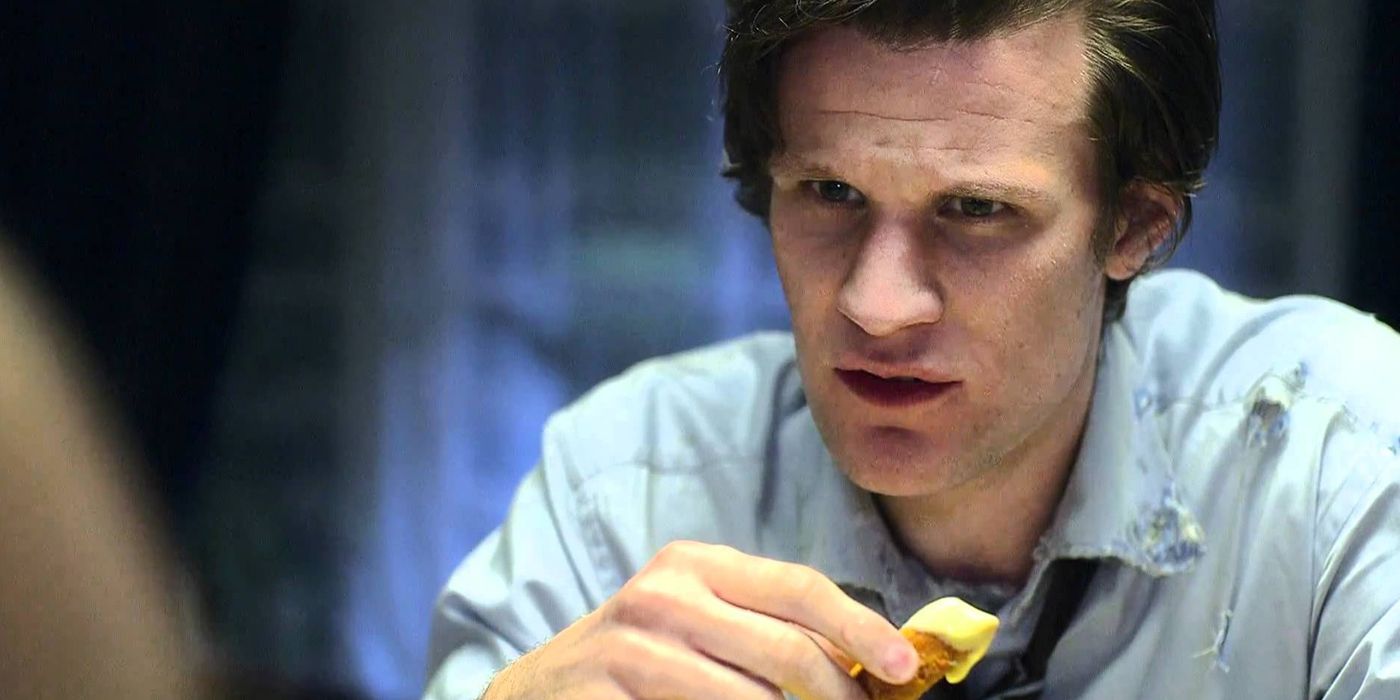 Moffat has famously said he thinks of Doctor Who as something of a fairytale; the mad old man who stole a blue box and ran away. Indeed, Moffat's tenure has leaned into the fairytale aspects of the character, elevating the Doctor to something of a legend, a mysterious man whispered about across the universe. It's also had the effect of making the Doctor feel like something of an eccentric superhero, rather than the alien explorer of past eras.Moffat's casting choices have been almost universally magnificent. Not many would have expected David Tennant's successor to be an even younger, more energetic and eccentric man, but it's difficult to imagine anyone other than Matt Smith in that era of the show now. Following Smith with Peter Capaldi seemed like the biggest possible no-brainer, and Capaldi has proved that point and then some, giving us one of the most nuanced, multi-faceted Doctors ever. The likes of Arthur Darvill, Jenna Coleman, and Pearl Mackie were all strong companions. That Karen Gillan has become a bonafide movie star comes as no surprise to anyone who was bewitched by Amy Pond for three seasons. And perhaps most importantly, Michelle Gomez's brilliant, unhinged performance as Missy, a female regeneration of the Master, set the stage for Jodie Whittaker's bow as the Doctor.
Moffat has famously said he thinks of Doctor Who as something of a fairytale; the mad old man who stole a blue box and ran away. Indeed, Moffat's tenure has leaned into the fairytale aspects of the character, elevating the Doctor to something of a legend, a mysterious man whispered about across the universe. It's also had the effect of making the Doctor feel like something of an eccentric superhero, rather than the alien explorer of past eras.Moffat's casting choices have been almost universally magnificent. Not many would have expected David Tennant's successor to be an even younger, more energetic and eccentric man, but it's difficult to imagine anyone other than Matt Smith in that era of the show now. Following Smith with Peter Capaldi seemed like the biggest possible no-brainer, and Capaldi has proved that point and then some, giving us one of the most nuanced, multi-faceted Doctors ever. The likes of Arthur Darvill, Jenna Coleman, and Pearl Mackie were all strong companions. That Karen Gillan has become a bonafide movie star comes as no surprise to anyone who was bewitched by Amy Pond for three seasons. And perhaps most importantly, Michelle Gomez's brilliant, unhinged performance as Missy, a female regeneration of the Master, set the stage for Jodie Whittaker's bow as the Doctor.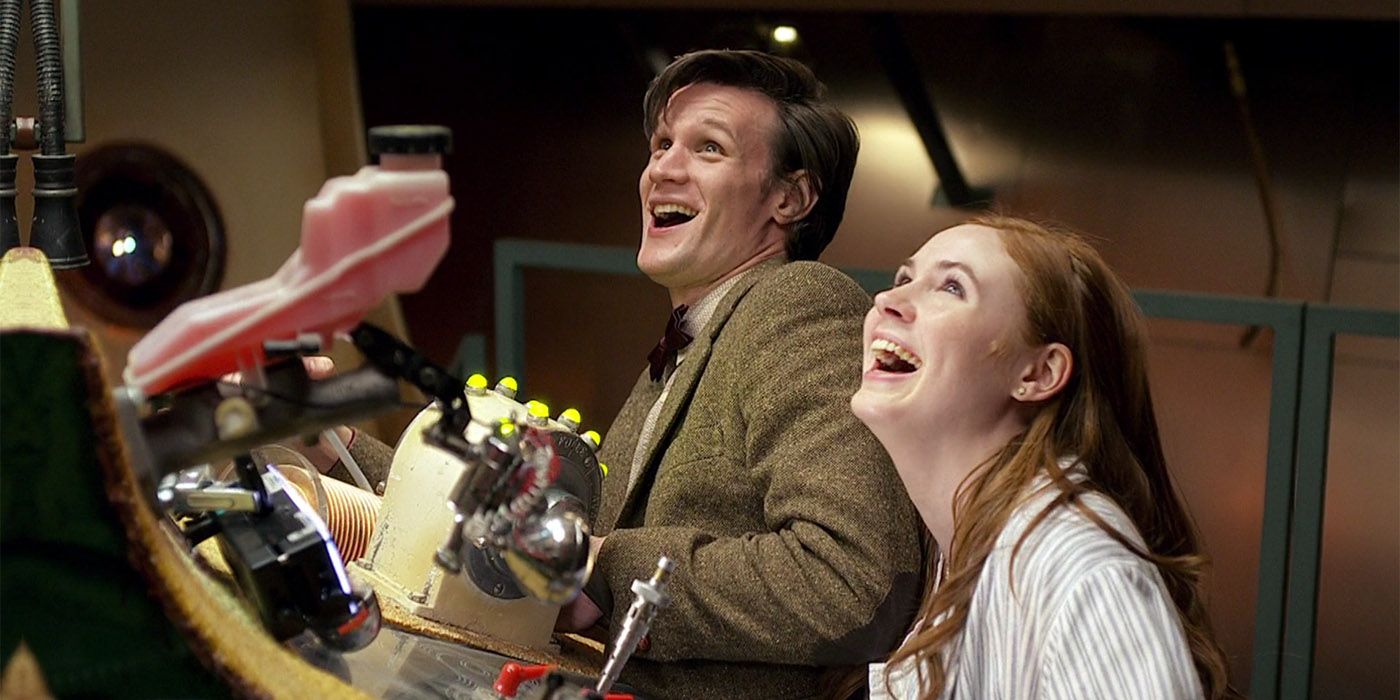 Despite his considerable achievements, Moffat's tenure has not been without problems. His well documented love of exploiting time travel mechanics for plot purposes - lovingly handwaved by the Doctor as "wibbly wobbly, timey wimey...stuff" - has often led to overarching plots that feel ultimately pointless, giant puzzles for the Doctor to solve and then put everything back how it was. The Doctor's sole understanding of those "timey wimey" rules means he's almost always two steps ahead of everyone else, including the viewer, which often felt like a cheat. It also led to the Doctor's occasional elevation to something akin to a god, capable of such limitless power and knowledge that the stories felt robbed of genuine peril.Perhaps Moffat's greatest sin has involved the Doctor's allies and companions. With the exception of season 10's Bill - who felt like something of an apology for the previous missteps - every companion in Moffat's tenure was, on some level, a human puzzle box, less a fully formed character and more a mystery for the Doctor to crack.Related: Matt Smith Could Return To Doctor Who When He's Old And Grey'Two characters in particular suffered tremendously from this effect. Clara Oswald was introduced as a far future survivor of a spaceship crash...then a barmaid in Victorian England...then a nanny in the present day. The question of Clara's existence was allowed to linger for a full season, before it was finally revealed she was split over time when she jumped into the Doctor's timeline to save him from death, a plot point that was both maddeningly vague and reduced Clara's entire purpose in life to saving the Doctor. Later seasons would attempt to make Clara a more fully realized character, but she could never completely shake that insultingly lame initial arc.
Despite his considerable achievements, Moffat's tenure has not been without problems. His well documented love of exploiting time travel mechanics for plot purposes - lovingly handwaved by the Doctor as "wibbly wobbly, timey wimey...stuff" - has often led to overarching plots that feel ultimately pointless, giant puzzles for the Doctor to solve and then put everything back how it was. The Doctor's sole understanding of those "timey wimey" rules means he's almost always two steps ahead of everyone else, including the viewer, which often felt like a cheat. It also led to the Doctor's occasional elevation to something akin to a god, capable of such limitless power and knowledge that the stories felt robbed of genuine peril.Perhaps Moffat's greatest sin has involved the Doctor's allies and companions. With the exception of season 10's Bill - who felt like something of an apology for the previous missteps - every companion in Moffat's tenure was, on some level, a human puzzle box, less a fully formed character and more a mystery for the Doctor to crack.Related: Matt Smith Could Return To Doctor Who When He's Old And Grey'Two characters in particular suffered tremendously from this effect. Clara Oswald was introduced as a far future survivor of a spaceship crash...then a barmaid in Victorian England...then a nanny in the present day. The question of Clara's existence was allowed to linger for a full season, before it was finally revealed she was split over time when she jumped into the Doctor's timeline to save him from death, a plot point that was both maddeningly vague and reduced Clara's entire purpose in life to saving the Doctor. Later seasons would attempt to make Clara a more fully realized character, but she could never completely shake that insultingly lame initial arc.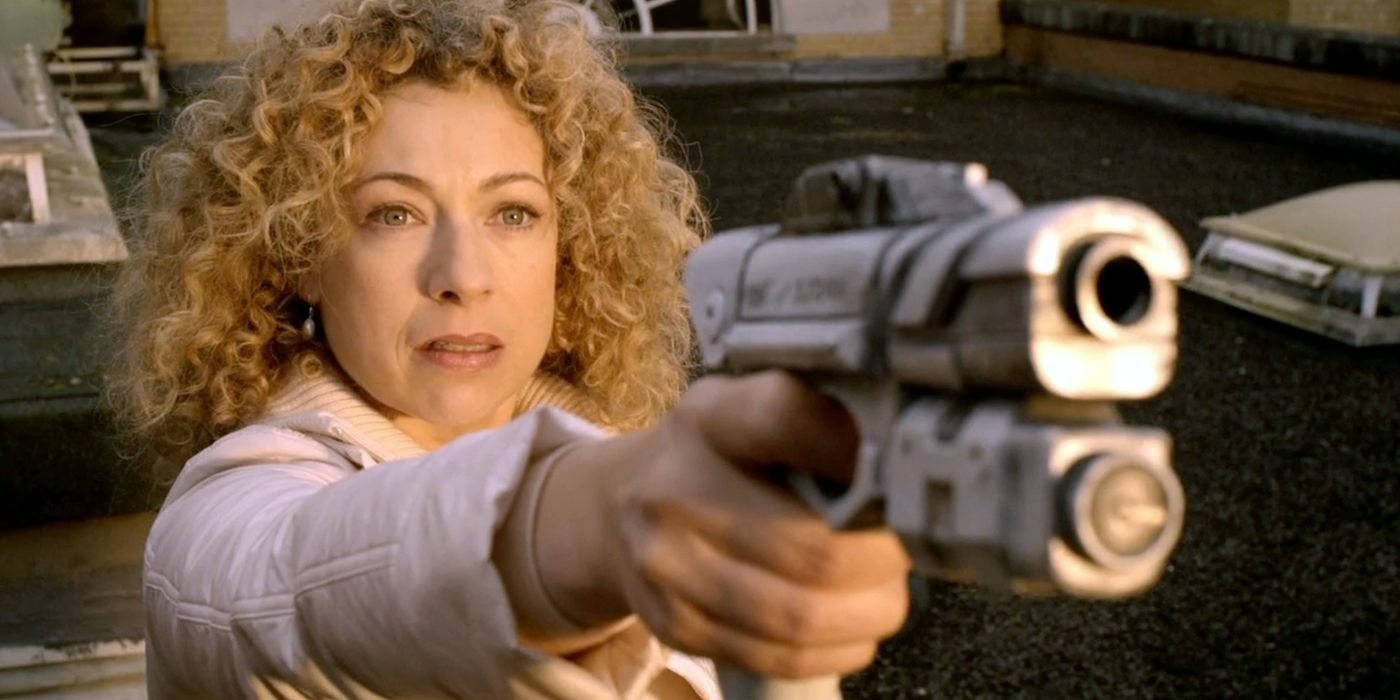 Easily the most divisive character of the Moffat era has been River Song, played by Alex Kingston. River first appeared in the Davies era two-parter "Silence in the Library/Forest of the Dead" - penned by Moffat - where the Doctor first met her, but where she already intimately knew the Doctor. Despite her death in that story, she would continue to feature in Moffat's era, as her life essentially played out in reverse to the Doctor's. What was once an incredibly enticing mystery and ingenious use of time travel eventually curdled, as River was revealed to be obsessed with the Doctor in decidedly unflattering ways, yet another female character who seemingly existed for no other purpose than to impress and love the Doctor. River is in many ways a microcosm of both Moffat's greatest strengths and most frustrating weaknesses as a storyteller.Even acknowledging Moffat's narrative blindspots and the growing feeling that he's said all he has to say about the character and his world, his departure is a bittersweet moment. Other than composer Murray Gold, Moffat is the last major component remaining from the revival series' earliest days, and his exit feels like the end of an era in an even more profound way than Davies' curtain call in 2010. Chris Chibnall has written a handful of Doctor Who episodes over the years, but he's made his name as a writer outside of the series, most notably in Broadchurch, a show with a decidedly different tone and aim than Doctor Who - even if it starred both past and future Doctors in David Tennant and Jodie Whittaker. Doctor Who's future has never felt more uncertain, which is in some ways exciting after nearly a decade of Moffat's tenure.Whatever the future holds for Doctor Who, it's going to stand on a foundation built by Steven Moffat. That foundation isn't perfect, but it's been a creatively audacious, narratively rewarding era for the show that honored the past while boldly pushing the show into uncharted territory. In both thrilling and frustrating ways, Doctor Who has never felt more quintessentially Doctor Who than under Steven Moffat's tenure, which is perhaps the greatest compliment you could pay a loving steward of the TARDIS.More: Why The Doctor Wants To Become A Woman
Easily the most divisive character of the Moffat era has been River Song, played by Alex Kingston. River first appeared in the Davies era two-parter "Silence in the Library/Forest of the Dead" - penned by Moffat - where the Doctor first met her, but where she already intimately knew the Doctor. Despite her death in that story, she would continue to feature in Moffat's era, as her life essentially played out in reverse to the Doctor's. What was once an incredibly enticing mystery and ingenious use of time travel eventually curdled, as River was revealed to be obsessed with the Doctor in decidedly unflattering ways, yet another female character who seemingly existed for no other purpose than to impress and love the Doctor. River is in many ways a microcosm of both Moffat's greatest strengths and most frustrating weaknesses as a storyteller.Even acknowledging Moffat's narrative blindspots and the growing feeling that he's said all he has to say about the character and his world, his departure is a bittersweet moment. Other than composer Murray Gold, Moffat is the last major component remaining from the revival series' earliest days, and his exit feels like the end of an era in an even more profound way than Davies' curtain call in 2010. Chris Chibnall has written a handful of Doctor Who episodes over the years, but he's made his name as a writer outside of the series, most notably in Broadchurch, a show with a decidedly different tone and aim than Doctor Who - even if it starred both past and future Doctors in David Tennant and Jodie Whittaker. Doctor Who's future has never felt more uncertain, which is in some ways exciting after nearly a decade of Moffat's tenure.Whatever the future holds for Doctor Who, it's going to stand on a foundation built by Steven Moffat. That foundation isn't perfect, but it's been a creatively audacious, narratively rewarding era for the show that honored the past while boldly pushing the show into uncharted territory. In both thrilling and frustrating ways, Doctor Who has never felt more quintessentially Doctor Who than under Steven Moffat's tenure, which is perhaps the greatest compliment you could pay a loving steward of the TARDIS.More: Why The Doctor Wants To Become A Woman

